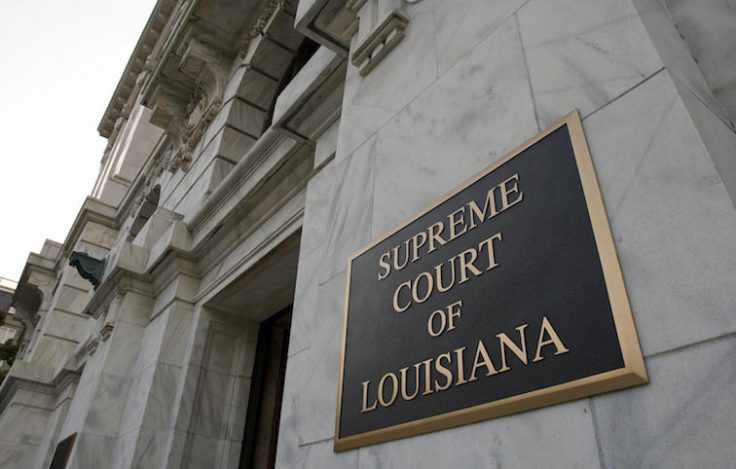A Louisiana lawyer joined a growing number of attorneys challenging the payment of mandatory membership dues to state bar associations.
The lawsuits argue that mandatory dues used to fund the associations' lobbying and legislative activity violate the free speech rights of individual lawyers.
Randy Boudreaux filed the lawsuit against the Louisiana State Bar Association (LSBA) on Aug. 1. The insurance defense attorney told the Washington Free Beacon that the case drew from the Supreme Court's 2018 Janus decision. The majority in the 5-4 decision said that forcing workers to pay compulsory dues or fees to public sector labor unions violated the First Amendment rights of workers.
"The LSBA…uses those compelled dues to engage in political and ideological speech, including advocacy on issues of public policy," Boudreaux's lawsuit says.
All 50 states require prospective attorneys to be admitted to the state bar before they are able to practice law. Boudreaux said lawyers are being compelled to pay for political activities and lobbying undertaken by the associations.
"The lawsuit is looking to change the status quo, which could mean the bar association makes membership voluntary or it stops taking political stances," Boudreaux said in a phone interview.
Similar lawsuits have been filed in Oregon, Oklahoma, Wisconsin, and Texas, all of which argue the mandatory dues amount to coerced speech.
Janus is not the only previous case the lawsuits draw upon, however. In 2018, the Supreme Court threw out a lower court's ruling that allowed state governments to force lawyers to pay mandatory dues to bar associations. The case, Fleck v. Wetch, drew the attention of the National Right to Work Foundation, which successfully argued Janus before the Supreme Court. The foundation filed an amicus brief in the Fleck case supporting the plaintiff’s argument.
"The highest level of First Amendment scrutiny applies to both mandatory union fees and to bar fees, because both involve compelling individuals to subsidize speech," foundation spokesman Patrick Semmens said in an email. "The Supreme Court in Janus found that forced union fees fail to overcome that standard, and in a bar dues challenge the same test should apply. Ultimately when the issue returns to the Supreme Court it wouldn't be a surprise to see bar dues struck down for many of the same reasons forced union dues for public employees were recognized as a violation of the First Amendment."
The LSBA argued it has policies in place to allow for partial dues for those who do not want to subsidize its political activities. Association President Robert Kutcher said the group has provided reimbursements to objecting members.
"Prevailing case law sets forth a mechanism for objecting to legislative positions and the LSBA has such a mechanism in place," he said in an email. "This mechanism provides for reimbursement of that portion of a member’s dues which is spent on lobbying. While this amount is minimal, we have in the past provided reimbursement to any member who has expressed his/her objection in accordance with the Association's Bylaws."
The LSBA will look to an Oregon federal magistrate judge who recommended the dismissal of two similar cases in Oregon. The judge cited a 1990 Supreme Court decision allowing the collection of mandatory dues to fund speech related to the legal profession. A federal district judge is now reviewing the lower court's recommendation.
Boudreaux told the Washington Free Beacon that the judicial landscape has changed since 1990, particularly at the nation's highest court. The majority in Janus overturned a 1979 Supreme Court ruling that allowed unions to collect compulsory dues in the name of maintaining labor peace. He said courts take compelled speech more seriously than in the past.
"There's a free speech infringement here, along with the issue of freedom of assembly," he said.
